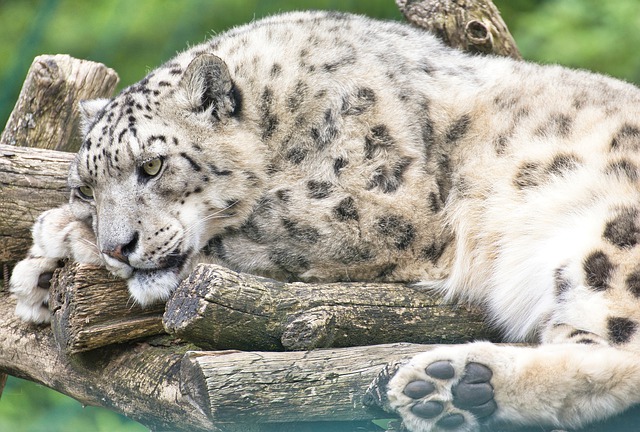A 9-year-old snow leopard named Ramil has contracted COVID-19 at the San Diego Zoo. The animal was found to suffer from a cough and runny nose on Thursday. The stool of the snow leopard was taken for coronavirus tests and the California Animal Health and Food Safety Laboratory System confirmed that the animal is indeed infected with COVID-19.
The stool of the snow leopard was tested twice and the same results of coronavirus infection were confirmed. How Ramil got infected with the disease remains a mystery.
“While we await the results of tests to determine if the snow leopard is positive for the virus that causes COVID-19, we can assure you the snow leopard and the Amur leopards who share his habitat are receiving excellent care,” said Dwight Scott, the zoo’s executive director. “Our veterinary teams and wildlife care specialists at both the Zoo and Safari Park are highly skilled, dedicated professionals who work tirelessly to ensure the well-being of the wildlife in our care.”
In January, eight gorillas at the San Diego Zoo Safari Park were infected with COVID-19 after a zoo worker who was asymptomatic tested positive to the pandemic. Safari Park is a sister animal facility to the San Diego Zoo.
The gorillas recovered from the disease and are now perfectly alright, according to zoo officials. The incident convinced officials that apes can also get infected with coronavirus and can be infected by positive humans. This made the San Diego Zoo management request that an experimental COVID-19 vaccine be manufactured for emergency animal use, Fox News reports.
Zoetis, a pharmaceutical company that manufactures animal drugs, created a COVID-19 vaccine that could be used for big cats and apes. But while the vaccine was administered to other animals at the zoo, Ramil had not been vaccinated before it came down with coronavirus. Workers at the zoo are mandated to wear face masks, but they are not mandated to take COVID-19 vaccine shots.
Ramil is kept in an enclosure with two Amur leopards and one female snow leopard. Zoo officials believe the other animals would have been exposed and possibly infected with COVID-19, so they have all been isolated and their habitat closed to the public. The zoo has however received a “recombinant purified spike protein vaccine” to be used to protect zoo animals against COVID-19 infection.
Source: theguardian.com


